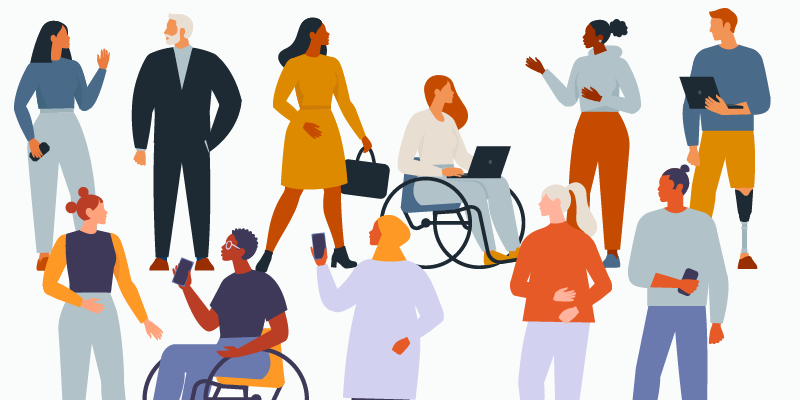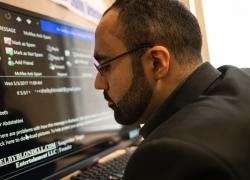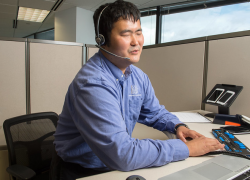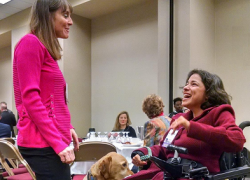
As 2021 comes to a close, those of us in the Office of Disability Employment Policy, like all of the department’s agencies, are firmly focused on the future. But, having celebrated our 20th anniversary this year, we move forward a little more mindful of the unique role we play in driving change for America’s workers with disabilities.
By forging connections and using resources and expertise in new and innovative ways, ODEP has served as a catalyst for change across the nation’s disability employment infrastructure. Policymakers now have access to credible, consistent data on which to base decisions. Private and public sector employers, including federal agencies, have guidance to help them meet their disability inclusion goals. Workforce development professionals have tools and support to better serve job seekers with disabilities. Technologists have a network of support for making emerging technologies accessible by design. Disability advocates have more channels than ever before to share insight into ongoing barriers and evolving needs.
Going forward, we will continue to support our stakeholders through the lens of our nation’s current and future challenges. To start, this means ensuring a disability-inclusive pandemic recovery. Fortunately, the employment rate is now headed in the right direction. But we still have a lot of work to do to make sure that all Americans who want to work can access services and supports, if needed, to do so – whether that means help obtaining employment or accessing accommodations to deliver on the job.
It’s important to note that our vision for a disability-inclusive recovery is, in fact, fully inclusive. To this end – and in response to President Biden’s Executive Order 13985 “Advancing Racial Equity and Support for Underserved Communities Through the Federal Government” – we are examining our policy work and grant programs to ensure they’re equitable in reach and respond to the needs of all Americans with disabilities, including those who have been historically marginalized. This is critical to our mission, because we know these communities experience higher rates of both disabilities and unemployment.
Another priority is advancing competitive integrated employment, meaning work in community settings where most employees have no disabilities and are paid the minimum or prevailing wages. Reflecting this, in July, President Biden announced investments to expand competitive integrated employment for workers with disabilities. We’re working directly with states and service providers through a number of initiatives to ensure all people have the opportunity to do what we all want to do: set and achieve our own goals for employment and contribute our skills and talents to the workplace.
Cutting across all of these priorities is helping youth with disabilities prepare for and succeed in employment in the post-pandemic era. On this front, we’re conducting research to understand shifts in the workforce landscape and monitoring trends in both education and employment to ensure public policy promotes success for youth with disabilities - and the parents, educators and service providers who support them.
As the former ODEP youth policy director, our work around youth is near and dear to my heart. As the current assistant secretary for ODEP, I know it’s simply good stewardship. Ensuring youth with disabilities can explore their interests, discover their strengths and pursue their aspirations is key to ensuring they can achieve those aspirations – and contribute to our workforce – going forward.
Taryn M. Williams is the assistant secretary of labor for disability employment policy.

 U.S. Department of Labor Blog
U.S. Department of Labor Blog







